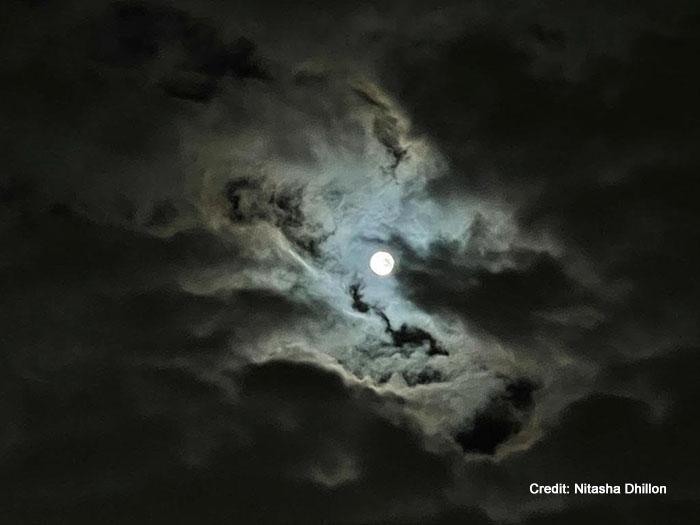“Aesthetics” as a philosophical concept intrinsically and intentionally seeks to establish principles and standards upon which form and content, art and performance, beauty and feeling are to be judged/recognized/valued/dismissed as a good or bad art, or not art at all. And in each case such principles and standards reflect, extend, and validate the worldview and value of the status quo of domination and oppression, whether that be Western domination or domination within the Indian nation-state context around caste, religion, gender or class. Thus, underlying “aesthetics” is the idea that there is one world and one center by which things are either closer to or further from the center, from the principle, which then should have us question whose center people/values/taste and who is excluded from this altogether.
I greatly valued and appreciated the Poetics course because it gave me additional words to describe and understand my art practice. We talked about how the pedagogy of Indian classical dance emphasizes correct and accurate poses and movement that must be perfected and mastered. The dance/er must attain mastery by performing within a specific structure which has its own specific ideology, leaving no place for the dancer to get lost, explore, or fail. Aesthetics in this context is suffocating because form and content are decided and determined.
The above is a colonial mode of aesthetics. If one goes against this hegemonic mode of aesthetics by resisting the pursuit of mastery, such refusal generates cracks in the structure which, in turn, allow for other possibilities, meanings, and practices. Dance may no longer be about the pose, perfection, or craft, but about the place, space, relations, meanings, and pedagogies generated. The performance or dance or embodiment is an act of becoming and an active mode of breathing, healing, and relating that is never decided, but rather is always contingent. The place, space, time, audience, performance, and how the dancer moves are all moving variables that are no longer fixed. They are movements and rhythms that do not adhere to an ideology. Instead, they allow for expression in the most honest sense, allowing for freedom to be attempted, pursued, and enacted. As an artist and filmmaker, I have sought to incorporate these ideas in my practice, because they exhibit a generosity, curiosity and openness that nourish my spirit. So rather than seeking perfection I struggle with medium, form and content to accommodate and mold to my feelings, sensibilities, drives and desires in order to create something that I feel should exist but one in which I have yet to experience.
The above has given me additional appreciation for something that Nelson Maldonado Torres has expressed in Ten Theses on Coloniality and Decoloniality: “Thedecolonial aesthetic, erotic, and spiritual turn is a shift away from the coloniality of established meanings, of sensing, of feeling, of vision, of gender and other modern/colonial conceptions of the body, as well as a rejection of the modern/colonial hierarchy of human experiences. A decolonial way of sensing or decolonial aesthesis is a key aspect of the decolonization of being, including the decolonization of time, space, and embodied subjectivity, but also of power and knowledge.

